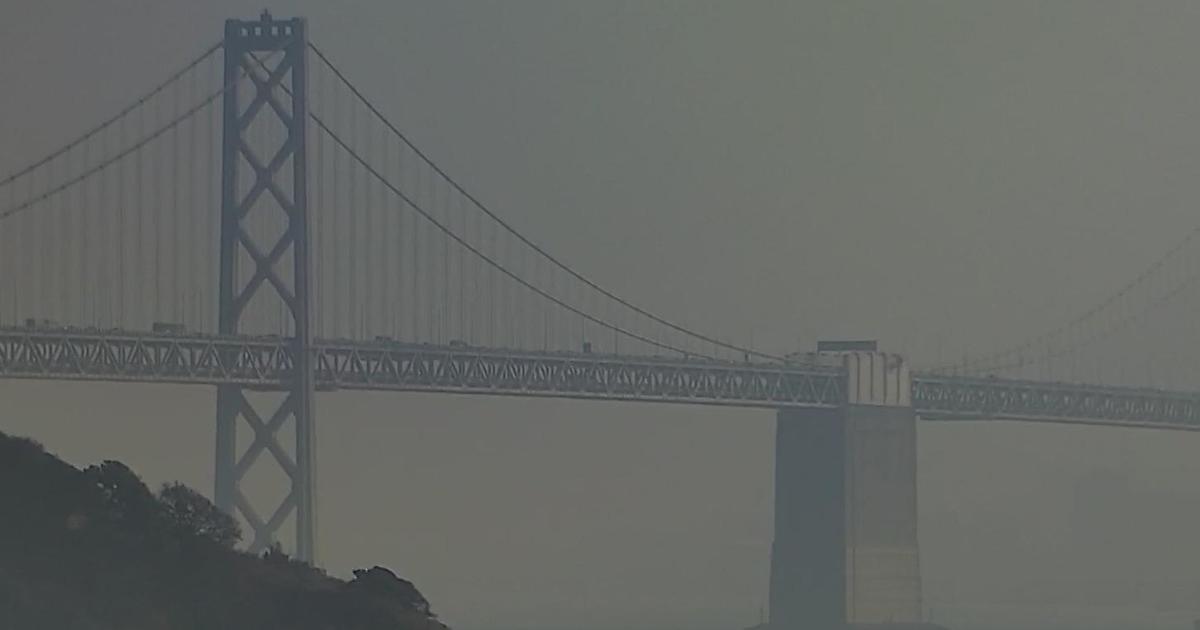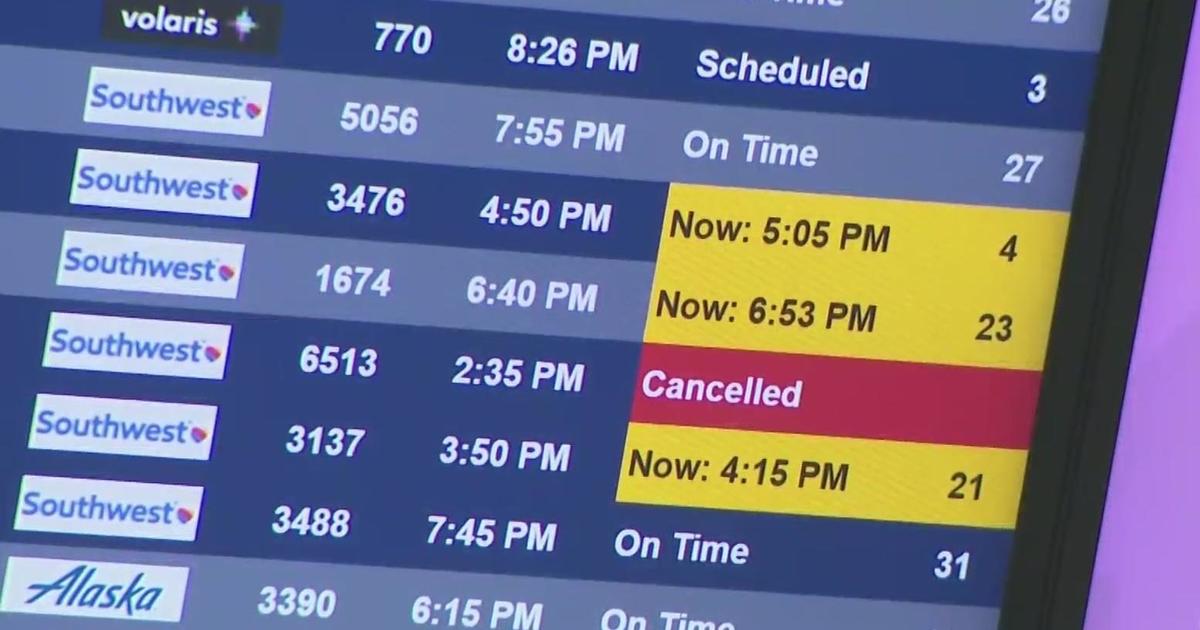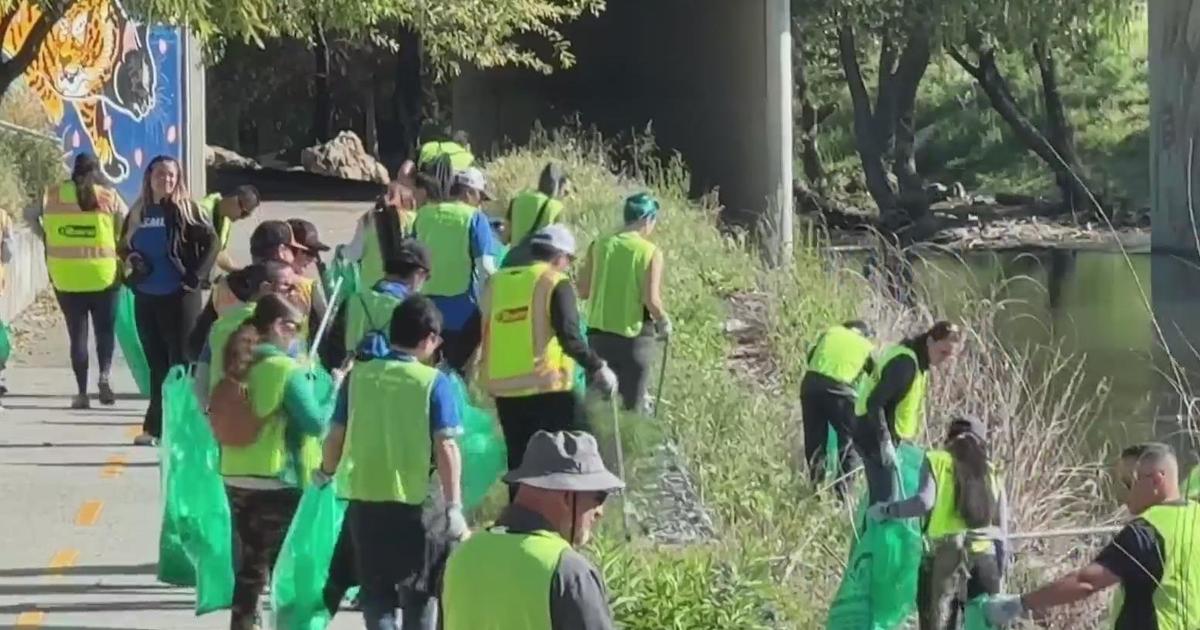California Unveils List Of 70 Planned Park Closures
SACRAMENTO (CBS/AP) - Gov. Jerry Brown's administration is proposing to close a quarter of all state parks because of budget cuts approved by the state Legislature.
The state would close 70 of its 278 state parks, said California State Parks Director Ruth Coleman. The park system will cut services this summer and begin shutting parks in September, with all 70 closings completed by July 2012, she said.
Among the Bay Area parks set for closure are the Benicia Capitol, Bothe-Napa Valley, Candlestick Point, Castle Rock, China Camp, Henry W. Coe, Petaluma Adobe and Samuel P. Taylor State Park.
Other notable parks set to close are the Governor's and Leland Stanford mansions in Sacramento, the Antelope Valley Indian Museum, the Salton Sea State Recreation Area and the Del Norte Coast Redwoods State Park.
The parks system hopes to minimize layoffs, possibly shifting some of the roughly 200 workers who would be affected by the closings into vacant positions within the department, said Tony Perez, the state's deputy director for park operations. There are almost 2,300 full-time positions in the state parks and about 500 of them are open.
"We regret closing any park," Coleman said in a prepared statement, "but with the proposed budget reductions over the next two years, we can no longer afford to operate all parks within the system." The state will start seeking partnerships with local governments and nonprofits that could keep some of the parks open, she said.
The cuts are the result of a bill Brown signed into law in March that slices $11 million from the parks budget in the fiscal year that begins July 1 and $22 million the next fiscal year. That trims the system's 2012-2013 budget from the state general fund to $99 million.
"This is a 40 percent reduction to the general fund parks budget since 2007-2008," said John Laird, California Secretary for Natural Resources.
The closings will be "devastating," said California State Parks Foundation president Elizabeth Goldstein, affecting sites in 36 of the state's 58 counties. "At a time when local communities are struggling to be part of the state's recovery, this proposal shuts the door to a vital part of our economy," she said in a statement.
The foundation questioned whether many of the parks realistically could be closed, even with roads blocked and buildings locked, because they have so many entry points. Unsupervised parks would be targets for vandalism and other illegal activity, jeopardizing the preservation of California's historic and natural resources, Goldstein said.
Coleman said the closed parks would be put in "caretaker status" with occasional checks for maintenance and security, but there will be a learning curve because the state has never closed parks before.
"I don't want to give the impression that we're just mothballing them and walking away," she said.
They hit the districts of Democrats and Republicans alike. At least five of the 70 closings would hit the central coast district of Sen. Sam Blakeslee, R-San Luis Obispo. More than a dozen were in the area served by Sen. Noreen Evans, a Santa Rosa Democrat.
"Until we stabilize the state's budget situation and find a better long term funding source for parks, I'm afraid that our current functional park closures will continue and many of the complete closures proposed by the administration will be inevitable," said Assemblyman Jared Huffman, D-San Rafael, who heads the Water, Parks and Wildlife Committee in that house. He is backing a bill, AB42, that would make it easier for nonprofits to operate parks for the state.
The department said it based the closing decisions on a variety of factors, including the parks' statewide significance, protecting the most important natural and cultural resources, public access, whether they have private or nonprofit partnerships and any grant or deed restrictions. The parks that will remain open account for about 92 percent of the visits to the system, officials said, but those on the closing list draw 5.6 million visitors a year.
The closings pose another challenge for communities around the state that rely on tourism dollars, said Gina Zottola, executive director of the Crescent City/Del Norte County Chamber of Commerce.
Crescent City's port was damaged by tsunami waves spawned by the March 11 earthquake in Japan, and the remote county has a jobless rate of more than 14 percent. Tourism is a significant part of the local economy. The Del Norte Coast Redwoods park — with more than 65,000 visitors in the fiscal year ending in July 2010 — is 7 miles south of Crescent City and is one of several state and national parks in the area that draw tourists.
"Closing the park, that's very disheartening," Zottola said. There's no guarantee that people who can't get campsites at the closed park will find them elsewhere or stay at hotels instead, she said. "Obviously, it's a cause for concern."
The park system will do its best to honor reservations already made for campsites and other services this summer but might have to shift some patrons to other sites because service cuts may shut some camping areas, Coleman said.
Brown is scheduled to release his updated proposal to close the remaining $15.4 billion state budget deficit on Monday. If the proposal includes additional cuts to the parks system, the list may grow, Coleman said.
Voters last year rejected Proposition 21, which would have raised the state's vehicle license fee by $18 and devoted the proceeds to the parks.
(Copyright 2011 by CBSSan Francisco. All Rights Reserved. This material may not be published, broadcast, rewritten, or redistributed. Wire services may have contributed to this report.)



